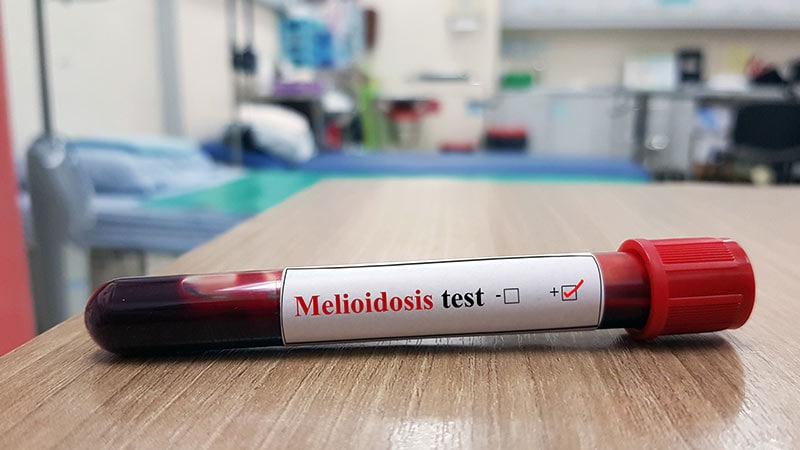Australia has recorded its highest number of cases of the tropical bacterial infection melioidosis, which is thought to have been triggered by major rainfall and flooding. The outbreak has placed pressure on already strained hospitals in the area.
The northeastern state of Queensland has recorded an unprecedented 215 cases of melioidosis so far this year compared with 59 cases over a similar period in 2024 and 46 cases in 2023. The state also recorded 31 deaths.
“We’ve had about four times more [cases] in Cairns and the hinterland area compared to the year-to-date average, and about six times more here in Townsville than the year-to-date average,” Jeff Warner, PhD, a microbiologist at the Australian Institute of Tropical Health and Medicine at James Cook University in Townsville, told Medscape Medical News.
Both cities border the Great Barrier Reef. Townsville experienced massive floods in January and February caused by record-breaking rainfall, which is likely to have contributed to the surge in infections. Cairns has also experienced its wettest March on record.
“On top of what was already probably a spreader event back from Cyclone Jasper flooding, there’s now been this additional significant weather event this year with a lot of water and a lot of flooding,” said Aileen Traves, MD, a general practitioner in Cairns. “That obviously has made a huge difference to seeing the numbers really spike.”
The increase in cases has put pressure on hospitals in the area, Traves told Medscape Medical News. “There have been some additional pressures, like on intensive care here, because some of the people are so sick that they’re actually ending up in the ICU.”
‘Great Imitator’
Melioidosis is caused by the bacterium Burkholderia pseudomallei, which is found in soil and water. The disease is endemic in tropical regions around the world, including northern Australia, and outbreaks are commonly tied to major rainfall events such as the monsoon.
The infection can present as pneumonia, skin infections, or septicemia and has a mortality rate that ranges from around 10% in Australia to as high as 40% in Thailand.
“Clinically, it’s one of the great imitators, along with tuberculosis and syphilis,” said Steven Donohue, MD, director of the Townsville Public Health Unit in Queensland. “In other words, it can present in very different ways,” It can also remain latent or subclinical for a long period, potentially even decades. This feature led to its being labeled the “Vietnamese time bomb” by US military personnel who were infected during their service in the Vietnam war.
Those most vulnerable to severe infection tend to be older individuals with preexisting comorbidities, such as diabetes and kidney disease, and those with impaired immune systems. But one unusual feature of this latest outbreak is the number of younger, otherwise healthy individuals — particularly those working on building sites — presenting with the infection.
“They’re often young, fit, and male, but they’re working in conditions where they are being exposed potentially to the bacteria in their job,” Traves said.
Potential Routes of Exposure
How patients get exposed to and infected with B pseudomallei is still uncertain, Warner said. Bore water has been implicated as a source of infection through ingestion, as has subcutaneous inoculation via cuts or abrasions. Another possible source is inhalation. “It’s almost certainly true that it is aerosolized during the extreme weather.”
Given that the organism usually resides in the soil, soil disturbance from development may be contributing to some of the clusters. “The hypothesis up in Cairns is that the Bruce Highway extension being pushed through just south of Cairns has disrupted the environment to such an extent as to release B pseudomallei from layers of soil that weren’t [normally exposed] to people,” he said.
Another theory is that the cleanup from flooding in Townsville has exposed more people to the bacterium than usual. “People are often having to clean up after floods or heavy rain in the wet, and often people are doing this with bare feet,” Donohue said.
That cleanup process also sometimes includes the use of pressure hoses, which can aerosolize the water and soil and increase the likelihood of inhalation by people who are “not necessarily wearing a mask or boots or gloves or all of the stuff they should,” he noted.
Another factor could be the demographics of Australians in the area, Donohue said. “We’ve got an aging population with a high rate of chronic diseases and also human movement into new suburbs and new settlements, so a lot of changes in behavior, a lot of changes in the environment.”
Australia has experienced numerous extreme flooding events in recent years, particularly along the eastern coast, that have been attributed to climate change. This latest outbreak highlights the human health risks for climate change, Traves said. “People don’t always think about the associations with human health and planetary health, but I think this is a classic example.”
The authors disclosed having no conflicts of interest.
Source link : https://www.medscape.com/viewarticle/flooding-triggers-major-melioidosis-outbreak-australia-2025a1000cn0?src=rss
Author :
Publish date : 2025-05-20 03:54:00
Copyright for syndicated content belongs to the linked Source.
